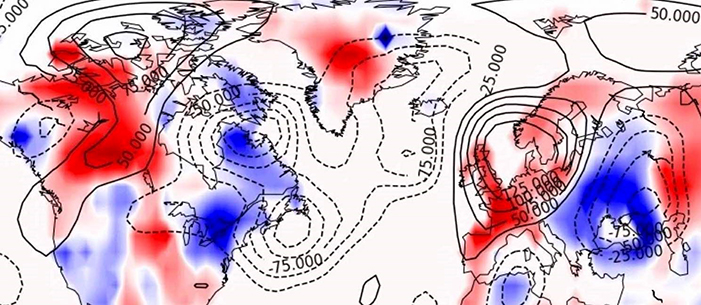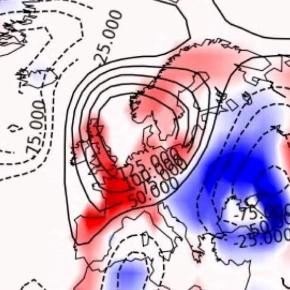
Climate change: improved prediction of heatwaves thanks to AI
Extreme heatwaves are rare, but they have major consequences on living beings and their environments. Anticipating their arrival is a central challenge. In an article published in Physical Review Fluids on April 4th, an interdisciplinary team of French scientists1 from the CNRS, the CEA, and the Claude Bernard University Lyon 1 unveiled artificial intelligence2 that can predict heatwaves. Based on “deep learning,” it uses statistical models that include numerous parameters, and also draws on a wide range of data. This probabilistic approach differs from traditional forecasts based on the laws of physics, which are for instance used for weather forecasts. The AI uses environmental conditions such as soil moisture and the state of the atmosphere to ascribe a probability for an extreme heatwave up to a month before its arrival. The research team trained the technology on 8,000 years of weather data, which was simulated thanks to the PlaSim climate model from the University of Hamburg. The AI has the advantage of providing a statistical model that can make predictions in a matter of seconds, and can also be used to predict phenomena difficult to predict using traditional climate forecasts and climate models because they are rare. However, the study emphasized that in order for the AI to be reliable, it must have a large dataset on which to draw. Yet since these events are rare, little information is available. To compensate for this weakness, the scientists plan to combine the AI with algorithms for rare event simulation, which they designed five years ago to improve forecasts.

© Freddy Bouchet
- 1The researchers work at the ENS Physics Laboratory of Lyon (CNRS/ENS de Lyon), the Dynamic Meteorology Laboratory (CNRS/ENS-PSL/Ecole polytechnique/Sorbonne Université), and the Laboratory for Sciences of Climate and Environment (CNRS/CEA/UVSQ). The latter two laboratories are part of the Pierre-Simon-Laplace Institute.
- 2This research was funded in particular by the Idex Lyon “Initiative of excellence” and the Samprace ANR project.
Probabilistic forecasts of extreme heatwaves using convolutional neural networks in a regime of lack of data. George Miloshevich, Bastien Cozian, Patrice Abry, Pierre Borgnat, and Freddy Bouchet. Physical Review Fluids, April 4 2023.


